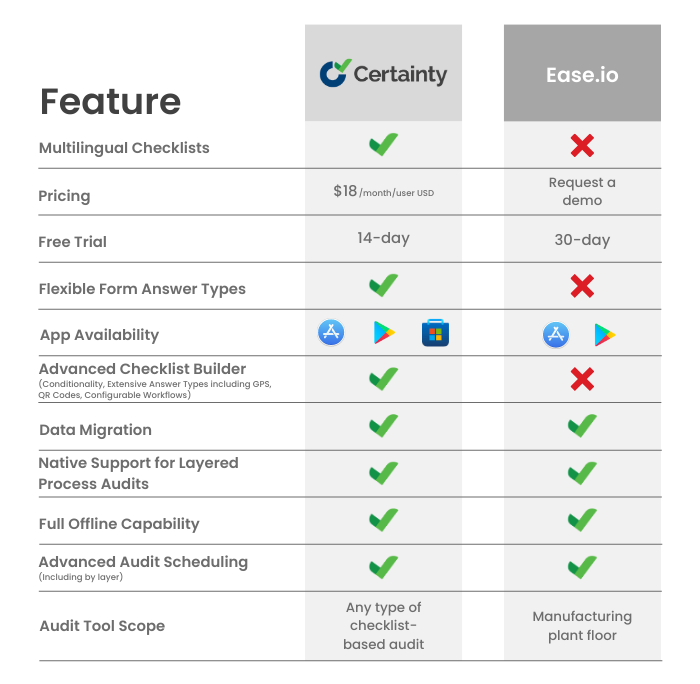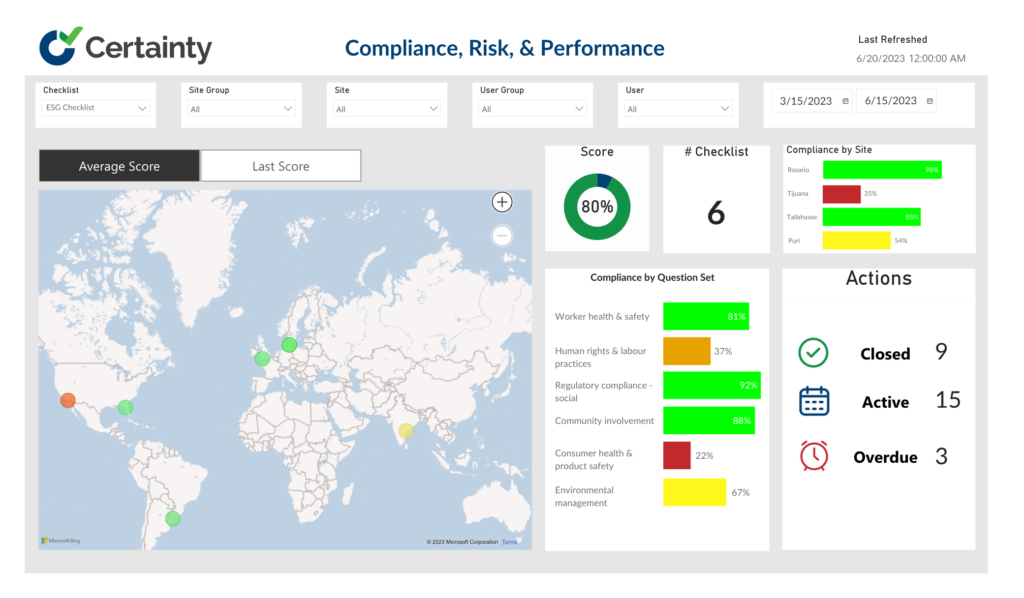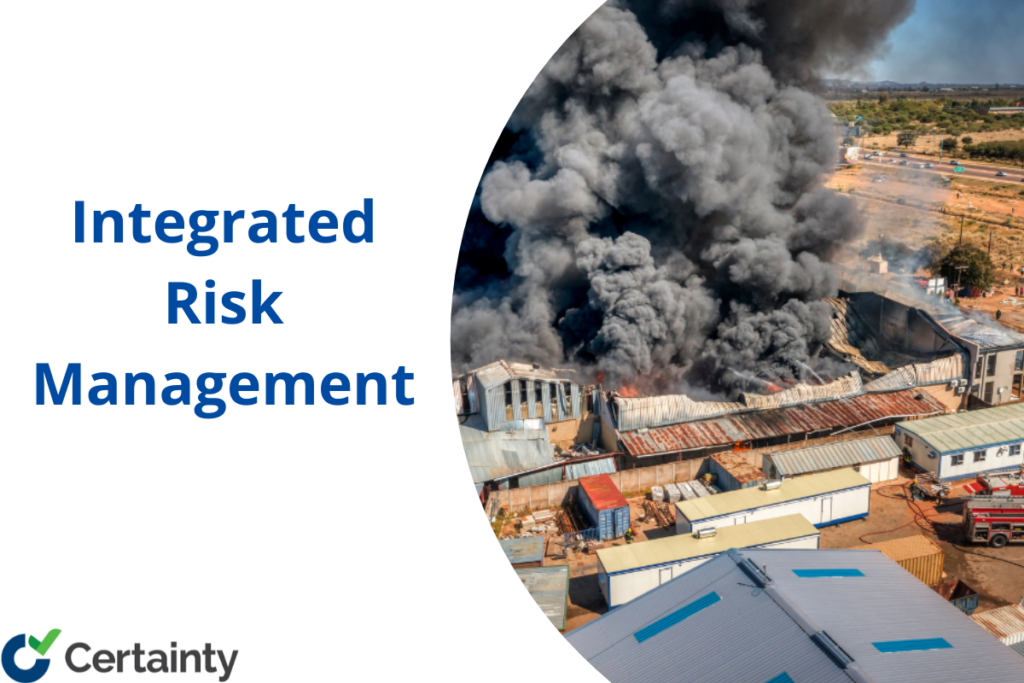Root Cause Analysis (RCA) is a systematic and rigorous process that helps you to find and solve the underlying causes of problems in your organization. In this comprehensive guide, you will learn what RCA is, why it matters, and how to perform it in five easy steps. […]
Supply Chain Management

Tomorrow’s Supply Chain: 7 Supply Chain Trends for 2024
We break down the predicted supply chain trends for 2024 and offer an in-depth guide for managing the ever-shifting reality of global supply chain management. From the adoption of eco-friendly methods to the growing significance of automation’s strategic improvements and transparency, our insights enable organizations to remain resilient and competitive in the ever-changing landscape of supply chain management. […]

Inspection Management Software Solutions: Build or Buy?
To guarantee quality, safety, and compliance in a variety of sectors, inspection management software is an essential tool. It assists with automating processes, managing corrective actions, data collection, report generation, and workflow streamlining. However, many enterprises struggle with which direction is better: purchasing a pre-built solution from a vendor or creating your own unique one. To help you choose the best solution for your needs, we will weigh the advantages and disadvantages of each option in this blog post. […]

4 Tips to Preventing Non-Conformances
Non-conformances are deviations from established standards, procedures, or specifications that can affect the quality, safety, or compliance of your business. In this blog post, you will learn the different types of non-conformances, how to prevent them effectively, and how Certainty Software can help you streamline your quality management system. […]

Corrective Action Examples: 5 Scenarios and Solutions
In this blog article, we will examine a few hypothetical scenarios that show the necessity of taking corrective action in several business areas. We’ll also talk about potential tactics and methods that could be used to stop or lessen the consequences of these hypothetical outcomes. […]

Streamlining Supply Chain Audits: How Businesses Can Save Time and Improve Efficiency
Supply chain audits are a crucial part of keeping modern corporate processes transparent, compliant, and effective. However, these audits frequently turn out to be time- and resource-intensive, which has an effect on a company’s total productivity. Depending on the complexity of the business, the typical time to complete a supply chain audit might range from several weeks to several months. […]

Ease.io vs. Certainty Software: Which Audit and Inspection Management Software is Right for You?
Overview If you are in charge of carrying out audits and inspections for your company, you are aware of how crucial it is to have dependable and effective software to handle your procedures. We at Certainty Software are aware that you want a tool that enables you to make and distribute checklists, gather and analyze […]

Certificate of Conformity: The Ultimate Guide for Manufacturing Companies
A Certificate of Conformity (CoC) is a document that certifies that your product meets the required standards or specifications. It can help you ensure product quality and safety, avoid legal liabilities and penalties, and enhance customer confidence and brand reputation. In this ultimate guide, we will explain everything you need to know about CoC for manufacturing companies. […]

TPRM in Manufacturing: Strengthening Business Resilience and Supply Chain Integrity
Third-party risk management (TPRM) is a critical imperative for the manufacturing industry, as it can help mitigate potential risks associated with third-party relationships, such as quality issues, delivery delays, regulatory non-compliance, cybersecurity breaches or reputational damage. In this blog post, we will discuss the key components, benefits and best practices of an effective TPRM program, and how Certainty Software can help you streamline your TPRM processes and improve your vendor performance and compliance. […]

Managing the Regulatory Requirements of Supplier Sustainability Due Diligence in Global Supply Chains
Discover how global corporations can effectively manage the regulatory requirements of supplier sustainability due diligence in complex global supply chains. Explore strategies for compliance, collaborative engagement, and continuous improvement. Learn how cloud-based software solutions can streamline the process, empowering organizations to drive positive change and shape a sustainable future. […]

How Bill S-211 Could Affect Your Business and Supply Chain Management
Canada has recently passed Bill S-211, a new law that aims to fight against forced labour and child labour in supply chains. The law imposes reporting obligations on government institutions and certain private entities that produce or import goods into Canada or that control entities that do so. In this blog post, you will learn how the law could affect your business and your supply chain management, and how to prepare for the new requirements and opportunities. […]

The Power of Integrated Risk Management: Enhancing Organizational Success
Do you want to learn how to manage risks effectively and efficiently in today’s complex and dynamic business environment? In this blog post, we will show you how integrated risk management (IRM) can help you achieve organizational success. We will also explain how Certainty Software can support your IRM initiatives. Read on to find out more. […]

The Ultimate Guide to Performing a Supply Chain Audit: Key Steps and Best Practices
A supply chain audit is a systematic and comprehensive evaluation of your supply chain processes, from procurement to delivery. The purpose of a supply chain audit is to identify and eliminate potential risks, ensure compliance with regulatory and customer requirements, and drive continuous improvement initiatives. In this ultimate guide, we will walk you through the key steps and best practices for conducting a successful supply chain audit. […]

8 Effective Risk Management Techniques for Today’s Challenges
From Bowtie Analysis, to training programs, discover 8 of the most effective risk management techniques and strategies your operations can implement quickly. Learn to how to better manage your risk mitigation efforts with this blog post. […]

How to Use Key Risk Indicators to Manage Risks and Improve Performance
Risk is inevitable in any business, but it can also be a source of opportunity and competitive advantage. You may have tried to use traditional risk management approaches, where each business unit leader is responsible for managing risks within their area of responsibility. Discover how to mitigate risk with Key Risk Indicators. […]




